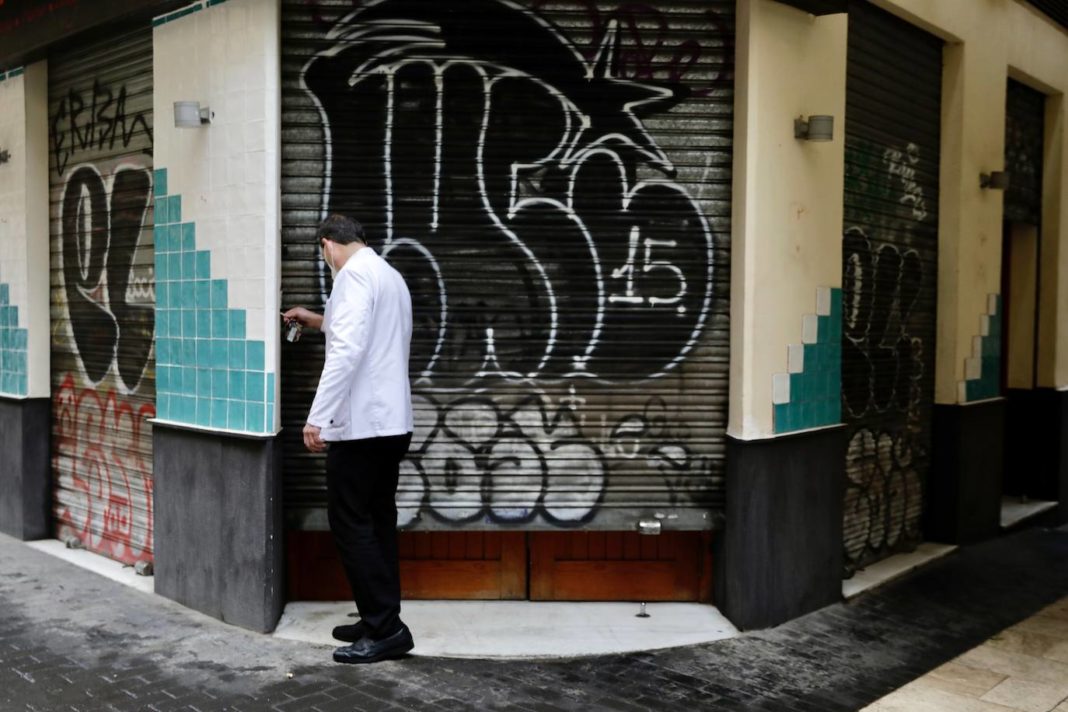The pandemic is like a tsunami that wipes out everything in its path. But while many have been able to adapt to government measures and ever changing legislation very nearly 4,000 small business, bars and restaurants, have been swept aside under the immense weight of the pandemic’s third wave.
According to calculations by Coremur, the Trade Federation of the Region of Murcia, between 15% and 20% of all regional businesses, which number about 22,000, have already been forced to pull down the shutters for the very last time.
That yields a figure of between 3,300 and 4,400 businesses. And the forecast they make for this year is no better, as they estimate that further businesses that are doomed to close could reach 40%.
“Yes, we need a rescue plan. It is the only way that we can possible survive,” says Carmen Piñero, president of Coremur. “We are analysing the business we were able to carry out at Christmas, the sales and the restrictions, to learn the extent of the damages and assess what we need to do in the future.”
Last week the Covid Monitoring Committee announced new restrictive measures that directly affect businesses in the region with the bringing forward of the closing time for all non-essential shops to eight in the evening.
The purpose of the new restrictions put in place by the regional government is to limit social contacts and, with it, the spread of the virus. Something that, in the opinion of Piñero, does not happen in local shops. “No one is ever going to get infected in a small shop. The security is total, it is as if you were at home. Even the smallest detail is taken care of,” she says.
Due to the current situation and the new restrictions, the sector says that “Trade is almost non-existent and we no longer have anywhere to go. We are in a very risky situation. So the public really need to help us out by buying in small businesses, which is the safest thing there is, with professionals who care about their safety, with competitive pricing price, and with good products,” she says.
Retail trade represents 12.5% of GDP and, as Piñero argues, it has asignificant impact on the structuring of cities and on employment. “When we employ someone, they are usually permanent contracts,” she says. That is why she advocates a bailout plan that sustains businesses because “if retail doesn’t survive, our economy collapses.”





